Twenty-eight years after South Africa's first multiracial elections

On 26 April 1994, South Africa's first democratic elections began and lasted until the 29th of the same month, marking a milestone in the country's history. The elections put an end to apartheid and brought Nelson Mandela to the presidency of the rainbow country.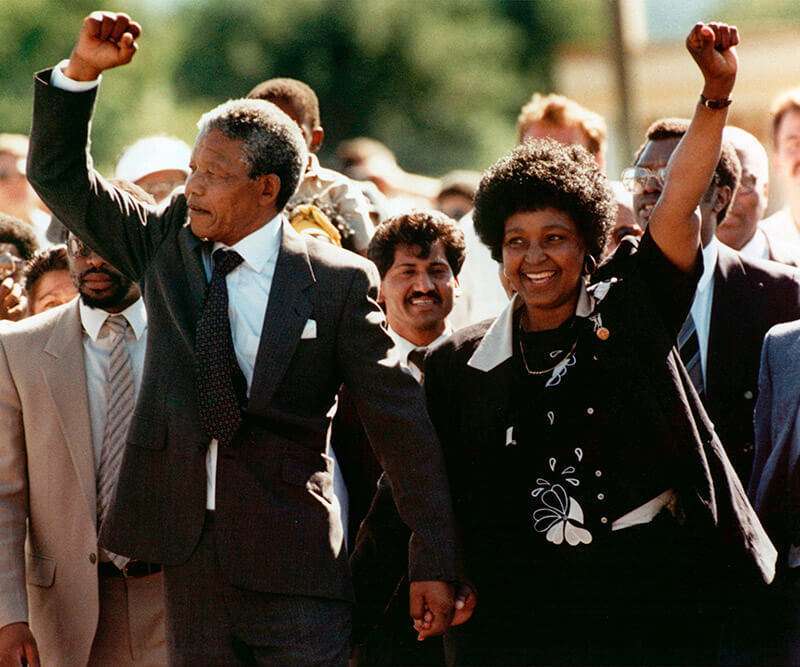
After enduring half a century of segregation and political violence in the country, South Africans crowded into long queues in an atmosphere of brotherhood, joy and bordering on festivity to elect the leader they saw as the hope for change and the dream of equality between blacks and whites. Speaking to the media, in what was to be his first time voting, leader Nelson Mandela declared: "This is, for all South Africans, an unforgettable occasion. It is the realisation of the hopes and dreams we have cherished for decades. The dreams of a South Africa that represents all South Africans, the beginning of a new era". The South African leader made these statements on 27 April. (EFE, 2019)
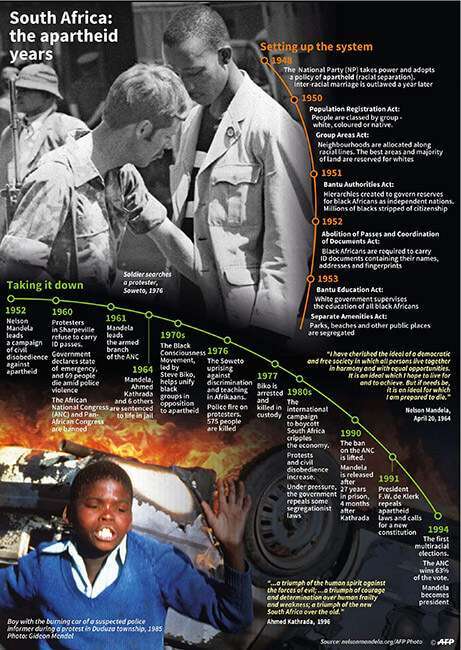
Let us remember that four years earlier, in 1990, President Frederik de Klerk surprised the world by declaring the end of the racial system and freeing Nelson Mandela, who had been in prison for 27 years. One year later, apartheid was abolished, that is, the "separate development of the races" in Afrikaans; the system of segregation was established by the Nationalist Party (NP) from 1948 to 1994.
Nelson Mandela was elected president, with a clear majority of 62.65% of the vote. His African National Congress (ANC) party remains the ruling party today, led by Cyril Ramaphosa.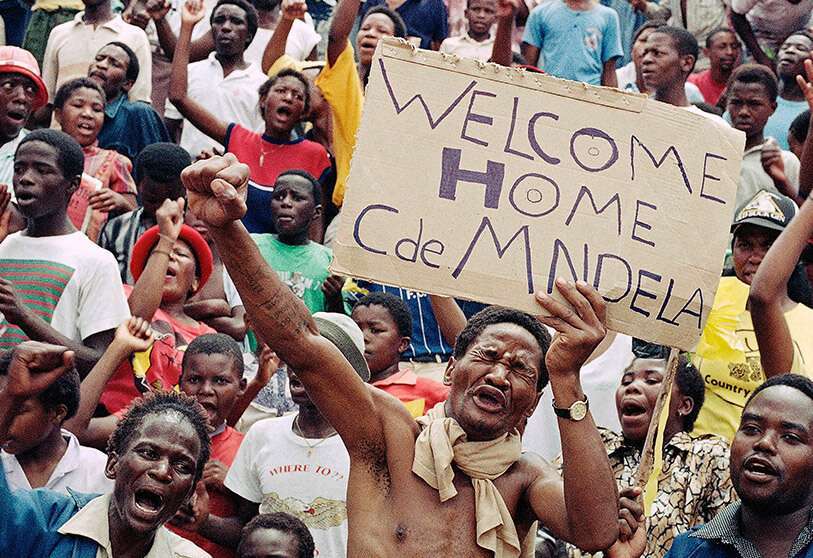
Mandela's victory signified the process of democratisation for the African nation, as the black population was able to regain the rights that had been crushed for years by the white minority, which was protected by the racist ideological codes they had created for themselves.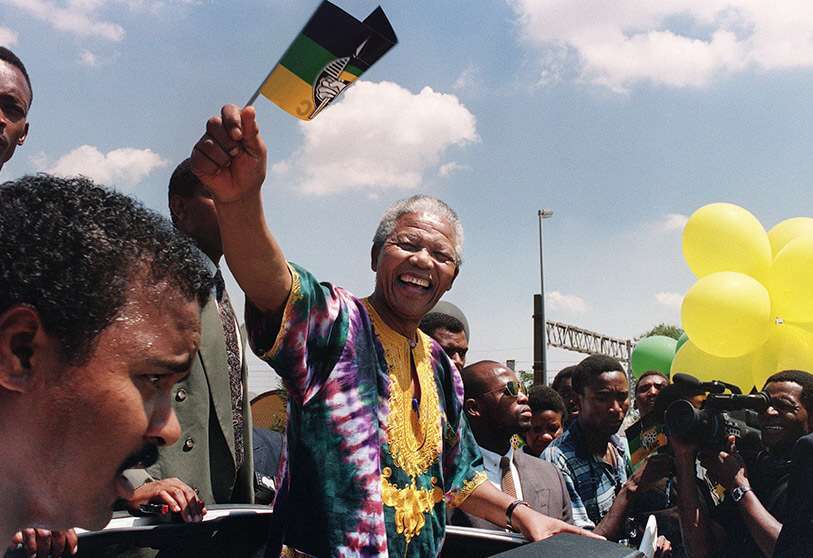
However, the new leader faced the challenge of rebuilding a nation out of hatred and thirst for revenge, which required the unity and will of the entire South African nation. Such reconciliation was not going to be easy, given the past, but the efforts and previous work carried out by Mandela and his predecessor De Klerk bore fruit and the southern country demonstrated the need to set a new course in the country's history. (Mesa, 2021)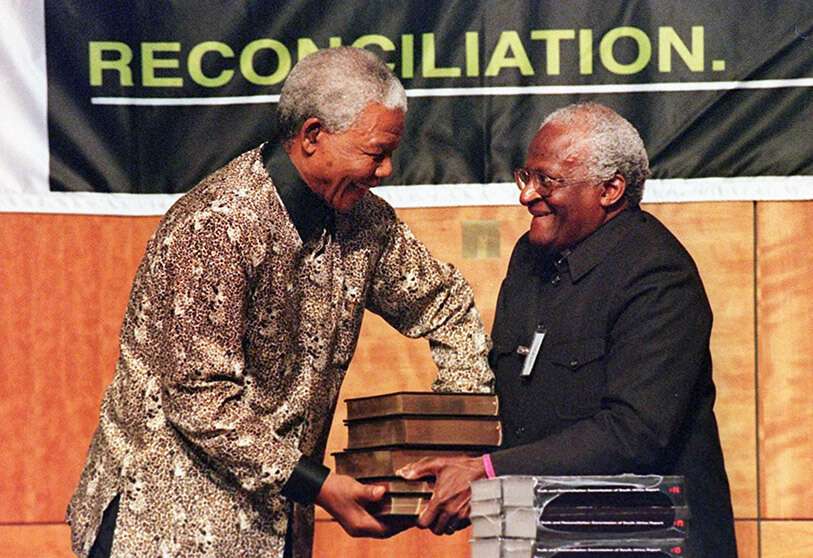
After Mandela's release from prison, several events took place in the country that almost plunged it into civil war, when in April 1993, a member of the extreme white right assassinated Chris Hani, secretary general of the Communist Party, an ally of the ANC party led by Mandela. Negotiations between Mandela and De Klerk, who at the time was the country's president, played an important role in preventing bloodshed, which earned them the Nobel Peace Prize in 1993. 
After his election as president, Mandela said in his inauguration speech in Johannesburg on 2 May: "We, the people of South Africa, are pleased that humanity has welcomed us back into its fold; that we, who not so long ago were outlawed, have today received the rare privilege of being the hosts, on our soil, of the nations of the world. We thank all our distinguished international guests for coming to take possession, together with the people of our country, of what is, after all, a common victory for justice, peace and human dignity. We trust that they will continue to offer us their support as we face the challenges of peace building, prosperity, democracy, the eradication of sexism and racism", (Menendez, 1994).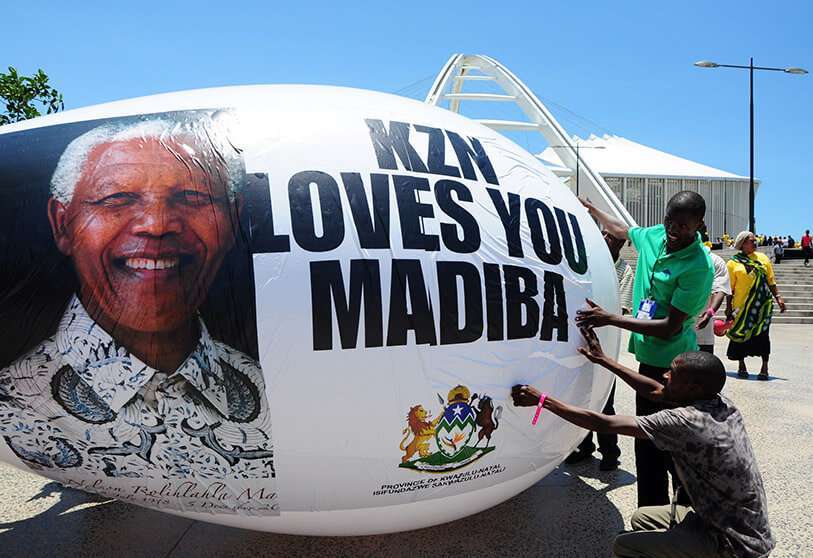
"In South Africa, we are convinced that it is possible and feasible to achieve our goal of a better life for all in the shortest possible time. Our confidence stems from the knowledge that this vision is shared by the vast majority of South Africans irrespective of their colour and political persuasion". (UN, 1995)
South Africa is currently trying to get back on its feet after the effects of the COVID-19 pandemic that led the country into a major recession due to the high number of infections.
References:
https://www.un.org/es/events/mandeladay/legacy.shtml








